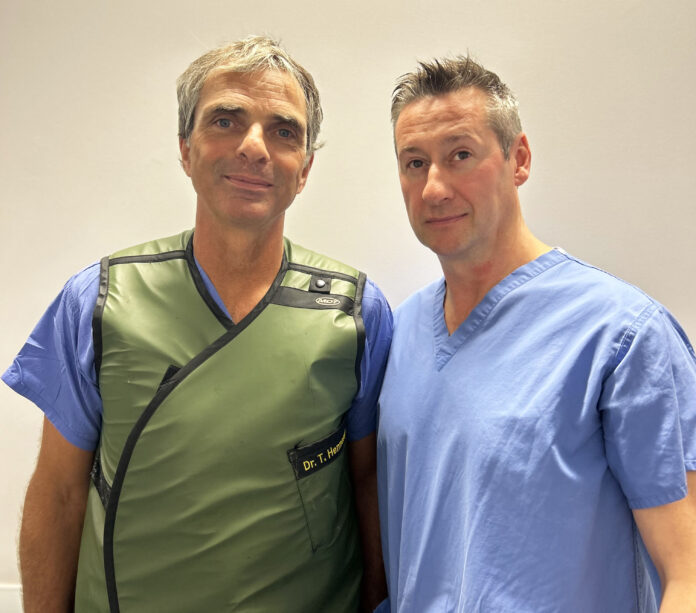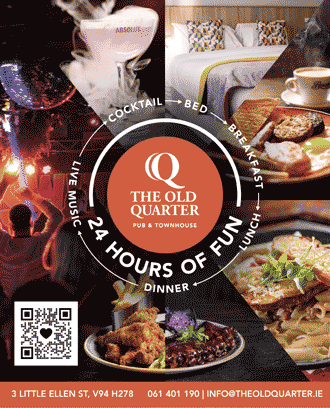
MORE than half of people who suffer a heart attack wait too long before calling an ambulance, new figures have revealed.
This comes as cardiology experts at University Hospital Limerick (UHL) are calling on patients to act faster and dial 112 or 999 if they are experiencing symptoms.
The newly published Irish Heart Attack Audit found only 44 per cent of heart attack patients in Ireland sought medical help within an hour of the onset of symptoms.
Published by the National Office of Clinical Audit, the report examined the care of 1,491 patients who had a STEMI heart attack that year, 189 of whom were admitted to UHL.
A STEMI (ST-elevation myocardial infarction) is among the most serious coronary events, involving a major blockage of the artery.
Patients can be treated either through thrombolysis (a clot-busting drug) or through primary percutaneous coronary intervention (primary PCI), which involves inserting a wire into the blocked artery to open it with a balloon and stent.
UHL is one of 10 primary PCI centres in Ireland.
Prof Tom Kieran, Consultant Interventional Cardiologist at UHL and HSE National Lead for Primary PCI, has called for a new national campaign to encourage more patients to make an early call to the emergency services.
“As it stands at the moment, only 44 per cent of patients call an ambulance within an hour of symptoms. If patients are at home and if they have chest pain, they need to call us early. Time is muscle. If you get to us early, you will have a better outcome. The international evidence on that is very clear and it is something we cannot emphasise enough,” said Prof Kiernan.
Limerick-based occupational health physician Dr Pat Lee was among the patients brought to a primary PCI centre last year and was glad to share his patient story in the national audit.
Dr Lee described how his event began at home after dinner one evening with a feeling of uneasiness that he initially felt was either in his upper tummy or lower chest.
Thinking he may be having an atypical coronary event, and after an aspirin failed to ease the symptoms, Dr Lee swiftly called an ambulance and, before he knew it, was in the cath lab at UHL.
“My advice is to err on the side of caution, and if you have any concern about any symptoms that may or may not be cardiac in nature, do not waste time. Phone 112 or 999 and let the paramedic make that call, and, if it is a STEMI, you will be treated in the right place at the right time and hopefully with as good an outcome as I had,” said Dr Lee.
Dr Lee added that he considered himself medically well over the years, took regular exercise, and underwent annual blood tests.
“What was against me was the family history of heart disease. We cannot change that one factor. All the other factors we can change where needed,” said Dr Lee.










